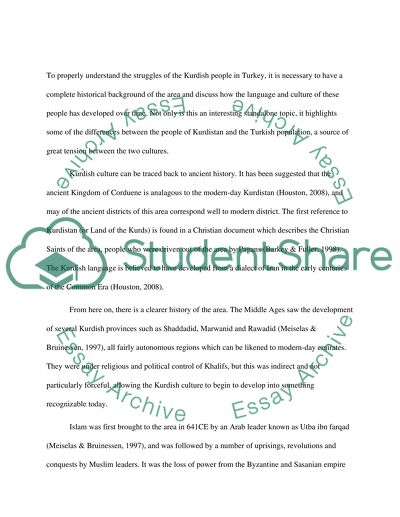Cite this document
(“The Kurdish Struggle to Establish an Autonomous State within Turkey Essay”, n.d.)
Retrieved de https://studentshare.org/history/1391671-the-kurdish-struggle-to-establish-an-autonomous-state-within-turkey
Retrieved de https://studentshare.org/history/1391671-the-kurdish-struggle-to-establish-an-autonomous-state-within-turkey
(The Kurdish Struggle to Establish an Autonomous State Within Turkey Essay)
https://studentshare.org/history/1391671-the-kurdish-struggle-to-establish-an-autonomous-state-within-turkey.
https://studentshare.org/history/1391671-the-kurdish-struggle-to-establish-an-autonomous-state-within-turkey.
“The Kurdish Struggle to Establish an Autonomous State Within Turkey Essay”, n.d. https://studentshare.org/history/1391671-the-kurdish-struggle-to-establish-an-autonomous-state-within-turkey.


